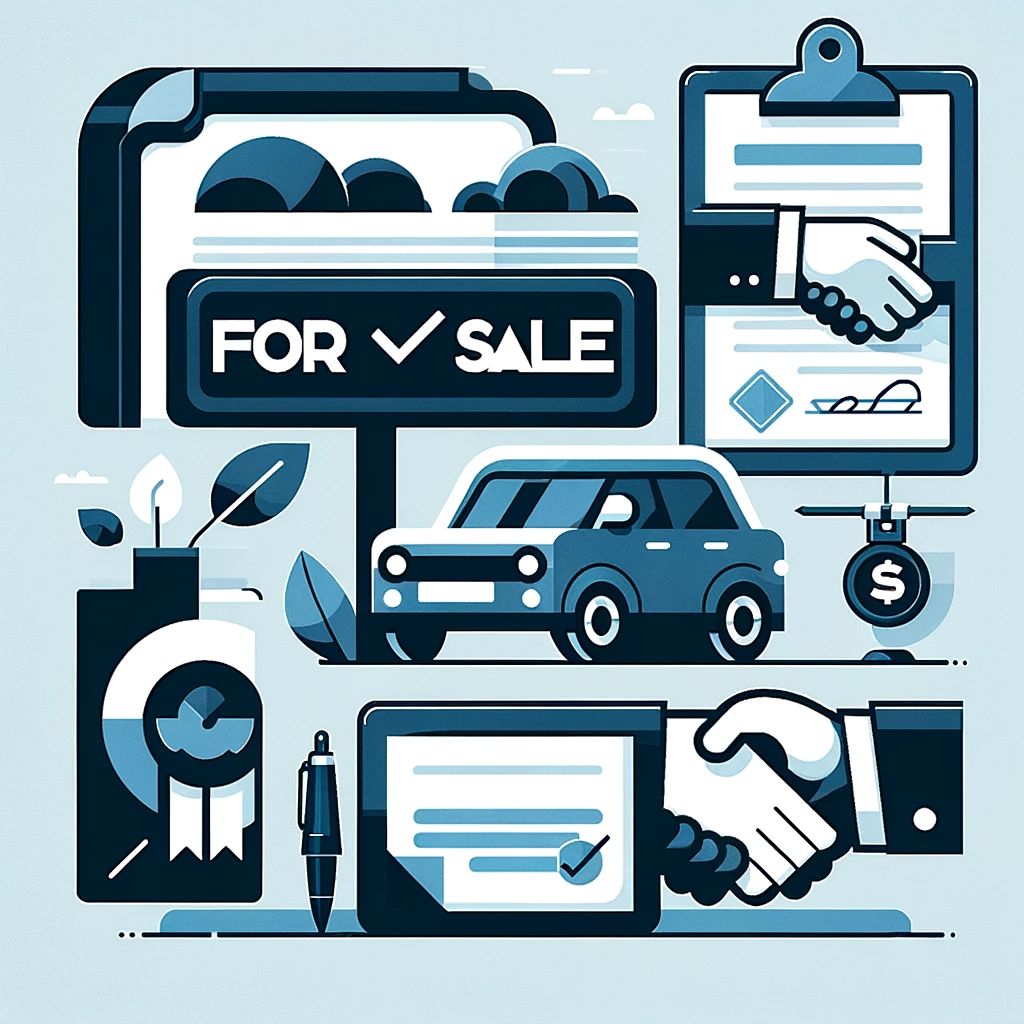Selling a car privately can be a rewarding process, offering you more control over the sale and potentially a higher price than trading it in at a dealership. However, it also involves several important steps to ensure a smooth and legally compliant transaction.
Introduction
Selling your car privately involves more than just putting up a ‘For Sale’ sign. From setting the right price to handling paperwork, this guide will walk you through the entire process to help you sell your car efficiently and safely.
What You’ll Need
- Vehicle history report
- Maintenance records
- Bill of sale and other necessary documents
- A clean and presentable car
Steps to Sell Your Car Privately
Prepare Your Car
- Clean Your Car: Both inside and out. Consider professional detailing.
- Complete Necessary Repairs: Address any maintenance issues that might discourage buyers or reduce the value of your car.
- Gather Documentation: Compile all necessary documents, including the title, service records, and a recent vehicle history report.
Price Your Car
- Research: Look at similar models in your area to set a competitive and fair price.
- Consider Market Factors: The price might vary depending on the demand, the car’s condition, and mileage.
Advertise Your Car
- Online Platforms: Use websites like Craigslist, AutoTrader, or Facebook Marketplace.
- Local Advertising: Consider using local newspapers or bulletin boards.
- Create an Attractive Ad: Include multiple high-quality photos and a detailed description of the car.
Screen Potential Buyers
- Communicate Carefully: Vet potential buyers over the phone or via email before meeting.
- Plan Safe Meetings: Meet in public places and consider bringing a friend.
Conduct Test Drives
- Verify Driver’s License: Ensure the buyer has a valid driver’s license.
- Accompany the Buyer: Join the buyer during the test drive, if possible.
Negotiate the Sale
- Be Prepared to Haggle: Know your lowest acceptable price beforehand.
- Be Transparent: Be honest about the car’s condition and history.
Complete the Sale
- Use a Bill of Sale: This document should include the sale price, car condition, and terms of the sale.
- Transfer the Title: Sign over the car’s title to the new owner.
- Report the Sale: Notify your local DMV of the sale.
Frequently Asked Questions (FAQs)
How do I ensure I’m setting the right price for my car?
Research the current market value for similar models in your area using online tools like Kelley Blue Book, Edmunds, or local classified ads. Consider factors like mileage, condition, and any added features to set a competitive price.
What paperwork is needed to sell a car privately?
Typically, you will need the car’s title, a bill of sale, service and maintenance records, and possibly a release of liability form, which varies by state. Check your local DMV website for specific requirements in your area.
How can I protect myself from fraud when selling a car?
Only accept verified payment methods such as a cashier’s check or a direct bank transfer. Avoid personal checks or wire transfers from unknown buyers. Always verify the buyer’s identity and ensure funds are secure before transferring ownership.
Should I allow potential buyers to test drive the car?
Yes, allowing test drives is standard and expected, but take precautions. Verify the buyer’s driver’s license, accompany them on the drive, and ensure your insurance covers other drivers.
How do I handle negotiation when selling my car?
Be prepared with your lowest acceptable price, but start slightly higher to give yourself some negotiation room. Remain firm but polite, and don’t be pressured into accepting a lower price than what you’re comfortable with.
What is the best way to advertise my car for sale?
Utilize multiple channels for the best results. Online platforms like Craigslist, eBay Motors, and Facebook Marketplace are popular. Additionally, placing ads in local newspapers or community boards can attract buyers.
How do I handle the payment process?
To ensure a secure transaction, arrange to receive payment at your bank, where you can immediately verify the funds and deposit them. For cashier’s checks, have the buyer accompany you to the bank to draw the check.
What should I do after the car is sold?
Complete any necessary paperwork required by your state’s DMV, such as submitting a notice of transfer and release of liability. Remove your license plates from the vehicle (if required by your state), and provide the buyer with all necessary documents.
Conclusion
Selling a car privately requires careful preparation and attention to detail but can result in a more profitable sale. By following these steps, you can ensure a smooth transaction and peace of mind.
Check our blog for more useful articles!
